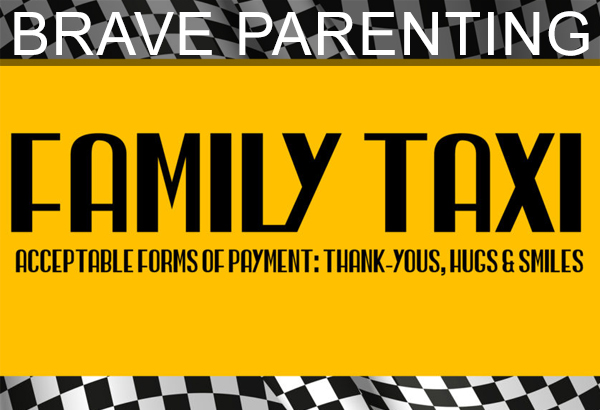Why You Want to be the Driver in Your Teen’s Carpools

You already are the family taxi driver. Though this keeps your schedule too full, these times in the car with your teenager and a few of his/her friends is one of the best places to catch up on what’s going on. This is when you learn about future and past parties; about arguments with teachers and coaches; about major term papers due the next day; and about who likes who. But if you are not alert to the vast potential of taxi drive times, you may miss this opportunity.
You will need a little patience and a lot of discipline to get the most out of these backseat conversations.
It begins with your teenager and his/her friends getting into the car, piling into their seats, and jabbering on about nothing. All you know for sure is that they are loud and energetic. And, of course, oblivious to your presence other than as driver. Usually, after a few minutes, someone will utter the test phrase or comment–something that will challenge your values. You’ll hear something like “Did you see…” or “Did you hear…” You now have a split second decision to make: to say something or to remain silent. Be wide here. Unless it is something that is grossly offensive, let it pass.
Now the conversation will get interesting and the eavesdropping is juicy. Now they’ll talk about all the interesting things happening in their lives–the ones they don’t normally share with you. And they’ll act as if you weren’t there and can’t hear what they are saying. When this happens, a second interesting phenomena occurs. You become a model driver. You stop for a full two seconds at all stop signs. You drive the speed limit, or just below. You stop at yellow lights, even a few green ones, too. You want to make this moment last.
Your job now, more than ever, is to drive well and stay quiet. This is your teenager’s way of catching you up on some of the details of his/her life. Don’t ruin the moment by asking lots of questions. Let her friends ask the questions and make the points. You just listen and take it all in.
After you have dropped off the last of the friends, the big moment arrives. As he/she climbs into the shotgun seat, your mind is racing with what to do with all of this information. Every cell in your body will scream out and tell you to ask her follow up questions. Restrain yourself. Your job now is to have a two second, nonverbal conversation. Do this by glancing at your beloved, with your eyes wide open, and your expression telling her I heard every word you guys said and I think we need to talk, or at least you need to tell me more. If you can stay quiet instead of panicking, you will see a different sort of expression flash across his/her face, a much more relaxed look that says I know you heard everything we talked about, and I know you’re cool enough not to interrogate me over the details. Then he/she will look away. Again, restrain yourself. Do a double-take if you need to. But when you do look back to your beloved, do so with an expression that says You’re right. Then turn your attention forward and attend to the details of driving. If you’re really in the moment, you will notice, just out of the corner of your eye that as your head turns forward your beloved’s hands simultaneously looks at his/her phone. This movement signals the end of your two second, nonverbal conversation.
Properly understood, this behavior on the part of your teenager is elegant and brilliant. In one car ride, he/she has managed to update you on some of the more pertinent details of his/her life without having to answer twenty questions about the details. Or, from another perspective, you now know enough about what is happening so that if something goes wrong he/she can count on you for support. That is, when she is in her room crying and you ask what is wrong, she’ll tell you because you have enough background information to make sense of the bits and pieces of information she’ll throw your way.
Imagine you had not overheard that conversation in the family taxi. Now when you enter her room and ask why she is crying, instead of letting you support her there’s a good chance she’ll either turn her head away in dismissal or attack you for asking the question. The reason is that without the background information you can’t possibly understand what she is going through, and she doesn’t have the energy or patience to catch you up on the history of the crisis. In short, she is angry with you for not understanding what she never told you.
Savvy parents recognize the carpool as the opportunity it really is–the chance for your teen to update you safely on the vulnerable areas of his/her life on the long shot that things will go haywire and he’ll/she’ll need your support. And that is a parenting win because you will know how to comfort and give advice.
You just need to teach yourself to not freak out, practice that non-verbal look, and remember how to be a model driver.
We are cheering for you, parents.





Comments
Trackbacks & Pingbacks
[…] you remember when you used to feel like the time you had with your teen in that taxi drive time between schedules was quality time? Or the only time you had […]
[…] life. And taxi drive times. And groceries and the meal prep. (So much food is required for teens!). And lost homework […]